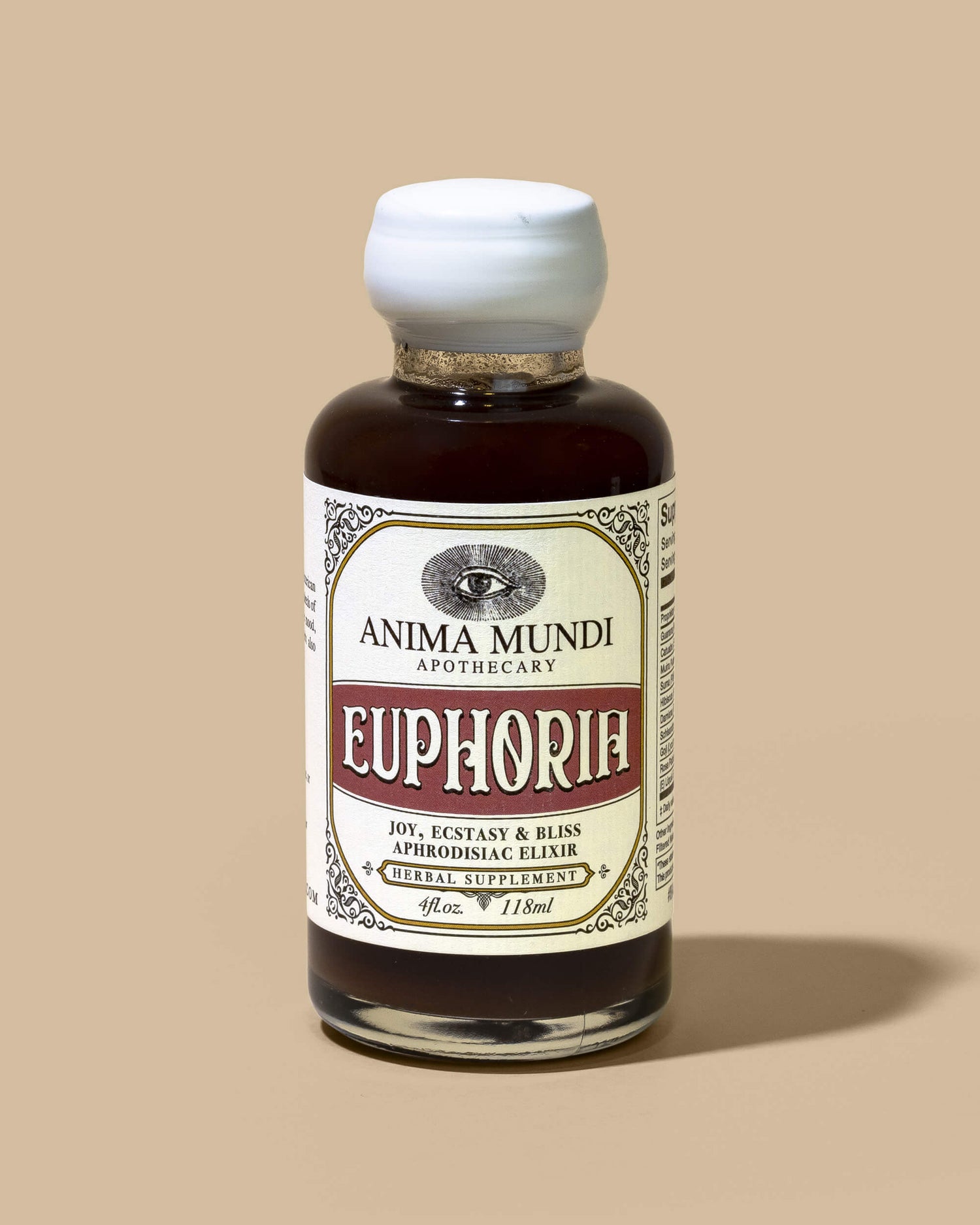There’s something so tender about preparing breakfast for someone you love.
It’s the first gesture of care of the day: a warm plate carried in on sleepy legs, a mug of something soulful cradled between two hands, a sprinkle of organic cinnamon or dried petals that quietly whisper, “I see you.” Whether you’re planning breakfast in bed for a cherished partner, hosting a backyard brunch to celebrate the height of summer, or simply seeking ways to deepen your morning ritual, a thoughtfully crafted first meal becomes an expression of love.
But if you’re feeling overwhelmed by conflicting health advice—intermittent fasting, no-carb breakfasts, elaborate smoothie bowls crowned with every trendy superfood—you’re not alone. So much misinformation circulates in so-called “wellness circles”: dramatic before-and-after claims, one-size-fits-all diet dogma, and products promising miracle results. As herbalists, we’re here to guide you back to a grounded, evidence-based approach, drawing from ancestral wisdom, traditional medicinal systems, and modern science, so you can craft a morning meal that genuinely supports your unique body and mind. But before we dig in, a reminder:

Everything you consume first thing in the morning is a sacred opportunity to realign with the rhythms of your body and the natural world.
From a traditional herbalist’s perspective, fine-tuning your first meal of the day has absolutely nothing to do with counting calories. Breakfast is an opportunity to nourish your life force (Qi), stimulate the digestive fire (Agni), and gently support the organs of elimination. As traditions like Ayurveda teach, your morning meal sets the tone for physical energy, mental clarity, emotional balance, and even immune resilience.
Breakfast is your first dose of medicine for the day.
When approached with intention, breakfast becomes a healing ritual that nourishes both body and spirit. In Ayurveda, dawn is governed by the Kapha dosha, which carries the qualities of Earth and water: heaviness, coolness, and inertia. A warm, spiced meal—think congee with ginger, turmeric, and a drizzle of ghee—is considered ideal for awakening digestive Agni and clearing the morning fog. In Traditional Chinese Medicine (TCM), the spleen and stomach meridians dominate at sunrise; these organs prefer warmth, regularity, and gentle flavors. Accordingly, a light broth or porridge with medicinal herbs such as astragalus and codonopsis supports nutrient absorption, bolsters the immune system, and prevents stagnation.
African herbal traditions also emphasize warming porridge cooked with millet or sorghum, subtly flavored with roots like ginger or baobab powder to support blood health and energy. Indigenous Latin American curanderos begin with herbal teas—such as rosemary for clarity, lemongrass for digestion, or rose petals for the heart—to honor both the body and spirit before transitioning to solid foods. In each of these systems, breakfast is as much a healing ritual as it is a meal.

There’s considerable confusion about what to eat in the morning, or whether to eat at all.
Diet trends and wellness fads often offer conflicting advice: “breakfast is the most important meal of the day, eat like a king” or “skip it for better focus.” From an herbalist’s lens, the answer lies in understanding a person’s constitution, hormonal cycles, and circadian rhythms.
The herbalist’s view of morning nourishment also honors the neuroendocrine system.
Herbs such as gotu kola and ginkgo biloba have been shown to help improve cerebral blood flow, enhance cognitive performance, and reduce stress-related symptoms. Schisandra berry, a staple in Traditional Chinese Medicine, has been studied for its adaptogenic properties, which help modulate cortisol levels and enhance focus and endurance. Fermented dairy products, such as yogurt and kefir, can support the gut microbiome, which research continues to show plays a critical role in immune function, mood regulation, and hormone synthesis.
Breakfast also sets the tone emotionally.
When you sit down to a thoughtfully-prepared morning meal, you're reminding yourself, on a somatic level, that you’re safe, worthy, and nourished. In summer, this is especially powerful. Peaches, dripping with juice, ask you to slow down and be present.
From an herbalist’s point of view, pleasure is a nutrient, too.
Studies have shown that pleasure and sensory enjoyment during meals can improve digestion, lower cortisol levels, and support nutrient absorption. It feeds our nervous system, uplifts our mood, and reminds us that nourishment is about joy, not deprivation. The famous William Carlos Williams poem comes to mind: “I have eaten/ the plums… you were probably/ saving/ for breakfast/ Forgive me/ they were delicious/ so sweet/ and so cold.”
That’s why the composition of your morning meal matters.
Herbalists often prioritize foods that calm the nervous system, regulate blood sugar, and support brain function. Clinical research supports this approach: consuming a high-protein breakfast has been linked to better dopamine production, improved satiety, and reduced late-day cravings. For instance, eggs are rich in choline, a nutrient essential for memory and the synthesis of neurotransmitters. Sweet potatoes provide complex carbs that support adrenal health and maintain steady blood sugar levels, a key consideration for individuals prone to anxiety or fatigue. Avocados and butter contain types of fats that nourish brain tissue and help absorb fat-soluble vitamins, such as A, D, and E. Chia seeds deliver omega-3s and fiber, which help regulate inflammation and digestion (both are intimately tied to mood via the gut-brain axis).

Busting the Myths Behind "Breaking Your Fast"
For many in the modern matrix of productivity-driven daily flows, “breaking the fast” has become synonymous with a protein shake (usually filled with artificial additives), a triple frapp, or skipping breakfast altogether in the name of intermittent fasting. But from the perspective of traditional medicine systems, how you gently reawaken your digestive fire matters just as much as what you eat. Rather than reaching for something cold, acidic, or overly stimulating, many ancestral healing practices begin with a warm, mineral-rich, alkalizing beverage to hydrate, activate, and balance the body’s pH after a night of repair.
The ever-controversial Dr. Sebi was equal parts renowned and infamous for his teachings on alkaline healing and cellular detoxification, emphasizing the importance of starting the day with herbs and foods that reduce acidity and inflammation. According to his methodology, mucus-forming and acid-producing foods contribute to dis-ease, while alkalizing herbs (burdock root, sarsaparilla, sea moss, etc.) help clear waste, support organ function, and restore mineral balance. From a physiological standpoint, this aligns with modern science’s current understanding of the gut lining. After fasting, the gut becomes more permeable, meaning that what you consume initially has a heightened effect on inflammation, absorption, and microbiome signaling. Warm teas, broths, or infusions of herbs like nettle, dandelion, or ginger gently wake up the liver, lymph, and digestive organs without causing an inflammatory spike.
Intermittent fasting, though popular, is often misapplied. Skipping breakfast entirely may benefit some, but for others—especially women or those with adrenal or thyroid imbalances—it can contribute to blood sugar crashes and hormonal disruption. What we see in traditional herbalist lineages is a focus not on restriction, but on cyclical, seasonal nourishment. Warm, easily digestible meals, such as congee with adaptogenic herbs or a porridge like this one, support sustained energy and mental clarity without overtaxing the system. Digestive tonics, such as triphala or herbal bitters, are used to signal hunger cues and enhance nutrient absorption.

Myth 1: Coffee on an Empty Stomach Is Harmless
The ubiquitous morning coffee culture often overlooks physiological consequences. Studies show that consuming caffeine on an empty stomach can spike cortisol levels, irritate the gastric lining, and deplete essential minerals such as magnesium and B vitamins. We know elevated cortisol contributes to chronic stress, anxiety, and disrupted sleep cycles, which is one reason why ancestral diets prioritized preparing the body to receive nourishment. Traditional healing lineages often begin the day with a digestive bitters or sour tonic, such as diluted apple cider vinegar, fermented kvass, or a dropper of herbal bitters, to stimulate bile flow and gently prepare the gut for nourishment. In Traditional Chinese Medicine (TCM), bitter herbs are prized for their ability to stimulate the spleen (which governs digestion) and promote smooth energy flow. The spleen is said to prefer warmth and regularity, making raw smoothies or iced lattes at sunrise energetically destabilizing, particularly for those prone to anxiety, fatigue, or digestive imbalance. Ayurvedic practitioners rely on trifala churna or a small dose of ginger-honey tea to support Agni without the crash.
Alternatives to coffee: Happiness Powder, Ceremonial Matcha, Heirloom Cacao
Myth 2: Intermittent Fasting Is Universally Beneficial
Multiple studies have shown that skipping breakfast (and excessive fasting) is associated with elevated cortisol levels, hormonal imbalances, and impaired insulin sensitivity later in the day. While intermittent fasting can benefit some, especially those with robust adrenal and thyroid health, it’s not a one-size-fits-all prescription. Particularly in estrogen-dominant bodies, especially those of women who are menstruating, pregnant, or breastfeeding, fasting can disrupt hormonal balance and elevate stress hormones, which in turn affect the thyroid, adrenal glands, and reproductive health.
Testosterone-dominant bodies may tolerate fasting more easily due to their different hormonal cycling. However, they also risk blood sugar crashes and nutrient deficiencies if practiced without clinical oversight. Ancestral herbalist lineages have long emphasized rhythmic nourishment, aligning meal timing with a person’s constitution, hormonal cycle, and seasonal shifts. In the summertime, a lightly warming, cooling, hydrating breakfast—like this power porridge—strikes an optimal balance.
Myth 3: Smoothie Bowls Are Always the Healthiest Choice
Highly Instagrammable smoothie bowls often pack a sugar overload with dried fruit, sweetened yogurt or industrial plant milks, honey, and exotic (highly processed, filler-packed) powders. This creates rapid blood sugar spikes followed by energy crashes. In contrast, traditional systems favor cooked, fiber-rich breakfasts that release energy steadily. Porridges made from steel-cut oats, millet, or buckwheat, with added adaptogens (such as schisandra and ashwagandha) and nuts, provide a balanced mix of macro- and micronutrients, supporting both physical stamina and cognitive function without a crash. See some of our favorites with whole foods below.
Ultimately, breaking your fast is far more than a metabolic event. It’s a moment to check in with your body’s rhythm quietly and offer it medicine disguised as food. Whether it’s an antioxidant-rich whisked matcha with your favorite added herbal allies, a warm cup of mineral tea, or an alkalizing glass of lemon water, starting your day with intention is an homage to your biology and lineage—isn’t that a compelling enough reason to ritualize your daily reset? When we break our fast in harmony with nature's seasons and our own, we return to a place of balance, resilience, and nourishment that no fad diet can ever replace.
 Science-Backed Ingredients for Morning Balance
Science-Backed Ingredients for Morning Balance
Clinical studies have linked high-protein breakfasts to improved satiety, better mood regulation, and more stable blood sugar levels. Eggs, a staple in many cultures, are rich in choline, essential for neurotransmitter synthesis and memory. Pasture-raised eggs cooked gently (such as a soft scramble or boiled) maximize nutrient retention. Plant-based proteins, such as sprouted mung beans or tofu, offer vegan alternatives rich in amino acids.
Complex Carbs + Adrenal Support
Sweet potatoes, steel-cut oats, and ancient grains provide slow-burning carbs that support adrenal function and steady cortisol rhythms. These foods provide B vitamins and minerals essential for energy production, helping to prevent mid-morning slumps and sugar cravings.
Healthy Fats + Hormonal Harmony
Ghee, avocado, nuts, and seeds deliver healthy fats that aid in the absorption of fat-soluble vitamins (A, D, E, K) and nourish brain tissue. Omega–3–rich chia, flax, and hemp seeds support anti-inflammatory pathways and the gut–brain axis, improving mood and digestion.
Adaptogens + Nootropics
Herbs such as gotu kola, ginkgo biloba, and rhodiola rosea have robust clinical evidence for enhancing cerebral blood flow, memory, and stress resilience. Schisandra berry, a cornerstone of Traditional Chinese Medicine (TCM), modulates cortisol, improves endurance, and supports liver detoxification pathways—a boon for anyone recovering from modern stressors.
Probiotics, Bitter Tinctures + Herbal Tonics
Fermented foods like yogurt, kefir, sauerkraut cultivate a healthy microbiome essential for immune and mood regulation. Herbal bitters invigorate digestion, while tonic infusions, such as nettle for its mineral content, dandelion root for liver support, and lavender or lemon balm for a calm nervous system, offer additional targeted benefits.
 An herbalist’s breakfast considers presence, personalization, and honoring the unique needs of your body, especially during seasons of stress, change, or celebration. This solstice season, we invite you to elevate your morning ritual with our Herbalist’s Summer Breakfast Edit. These joy-filled recipes incorporate sun-drenched fruits, ancient tonic herbs, and deeply rejuvenating foods to energize, brighten, and balance the body and mind.
An herbalist’s breakfast considers presence, personalization, and honoring the unique needs of your body, especially during seasons of stress, change, or celebration. This solstice season, we invite you to elevate your morning ritual with our Herbalist’s Summer Breakfast Edit. These joy-filled recipes incorporate sun-drenched fruits, ancient tonic herbs, and deeply rejuvenating foods to energize, brighten, and balance the body and mind.
As the sun reaches its apex, we invite you to infuse your morning routine with these nourishing, plant-powered plates—and cups! Begin with a warm, alkalizing elixir, then follow with a balanced, grounding breakfast that combines science and spirit without sacrificing flavor.
Sacred First Sips
Savory Options
Keto Pie with Reishi and Ashwagandha
Functional Snacks + Ferments
Golden Sun Mug Beans + Rose Yogurt
Sourdough Bread with Butterfly Pea + Lotus
Golden Sun Milk Sourdough Blossom

Sweets + Healthy-ish Treats
Superfruit Bliss Smoothie Bowl
Chocolate Protein Smoothie Bowl
* The above statements have not been evaluated by the Food and Drug Administration.
























